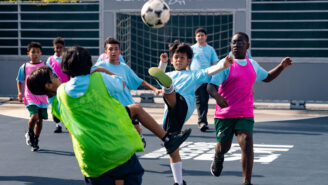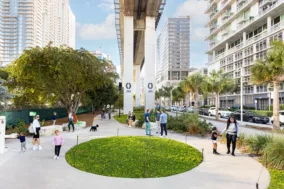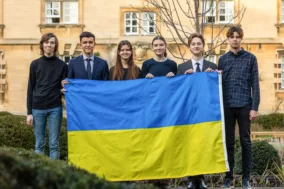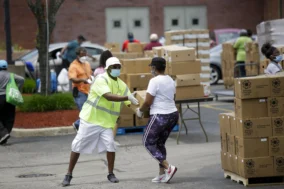Making Space for Children’s Soccer in Miami-Dade
1. Introduction
We all appreciate the values that sports instill in our youth: the importance of teamwork, the discipline of being an athlete, and the joy of competition. I’ve seen this again and again over the course of my career. My colleagues who played team sports are accustomed to collaborating, to performing under pressure, and to getting things done. It’s my hope that through these new mini-pitches, children across Miami-Dade will develop values and skills that will prepare them for a lifetime of success.
Introduction
Over the past several decades, the game of soccer—always a favorite around the globe—has grown enormously popular across the United States. To promote the value of the sport to young Americans, the U.S. Soccer Foundation was founded in 1994. In part thanks to its efforts, soccer’s growth has been remarkably rapid, especially in communities whose resources allow them to organize leagues and clubs, afford uniforms and coaching, and accommodate the enormous “pitches”—larger than a football field—that the game requires.
Recognizing the potential the game could have for underserved families, the Foundation also launched an initiative called Soccer for Success, enabling more than 100,000 children in 180 low-income communities to participate in after-school soccer programs. In many neighborhoods, however, a problem emerged: dense, urban areas lack the space for full-sized pitches, and families had neither the time nor means to drive their children to distant fields.
In response, the Foundation proposed to build hundreds of soccer “mini-pitches”: smaller, hard-surfaced play areas, built to last, located within convenient distance of underserved families, where children of all backgrounds could be introduced to a scaled-down version of the game in a secure, well-equipped, and safe environment. The program would include not only the construction of the pitches but staffing, maintenance and programming to ensure that young people would consistently engage with and learn from the game.
To help fund the effort, the Foundation turned to Griffin Catalyst—whose founder, Ken Griffin, previously coached soccer for decades, played midfield in men’s leagues, describes himself as a “big-time soccer fan,” and notes that “soccer is a game every young girl and boy can pick up.” With the ultimate goal of building a thousand safe places for children to play across America, their effort was launched in 2017 in Chicago, where—with Ken’s support—the 50 mini-pitches developed around the city’s parks are now being used annually by many thousands of community members.
Soccer Comes to Miami-Dade
“This is the right time for this initiative. We have the FIFA World Cup coming. Miami’s a host city. There’s energy behind it, there’s momentum. So, to build this soccer initiative to serve children and youth in this community, and to do so leading up to the World Cup … is truly special. ”
Building on their earlier success in Chicago, the U.S. Soccer Foundation and Griffin Catalyst are partnering to expand the effort to Miami-Dade, whose population of 2.6 million makes it the largest metropolitan region in Florida and the seventh largest in the United States. Their goal is to create 50 mini-pitches across the region in advance of the FIFA World Cup in 2026—which will take place in Miami and 15 other North American cities.
To carry out the $5-million project, the two groups are collaborating with Miami-Dade County Mayor Daniella Levine Cava and The Children’s Trust—a countywide public funder dedicated to improving the lives of Miami-Dade’s children and families. As a local partner, The Trust, which funds more than 200 after-school and summer providers, helps to select the neighborhoods, schools, and institutions to host the new mini-pitches, with the goal of engaging 30,000 local children over the next seven years. The Trust is also providing funding to support programs and activation for the completed pitches.
In August 2025, the initiative reached a crucial milestone with the announcement of a new partnership between the U.S. Soccer Foundation and The FIFA World Cup 2026 Miami Host Committee—on whose board Ken Griffin sits—to expand their efforts to impact the city’s youth soccer programs in anticipation of the FIFA World Cup, being held in Miami in July 2026. Working together, the Host Committee and the U.S. Soccer Foundation, with the support of Griffin Catalyst, will train 750 coaches to serve as mentors and activate additional program opportunities throughout Miami-Dade. The announcement, made at the Children’s Home Society during the opening of another Griffin Catalyst—sponsored mini-pitch, marks the beginning of a year of transformation and growth for youth soccer in Miami.
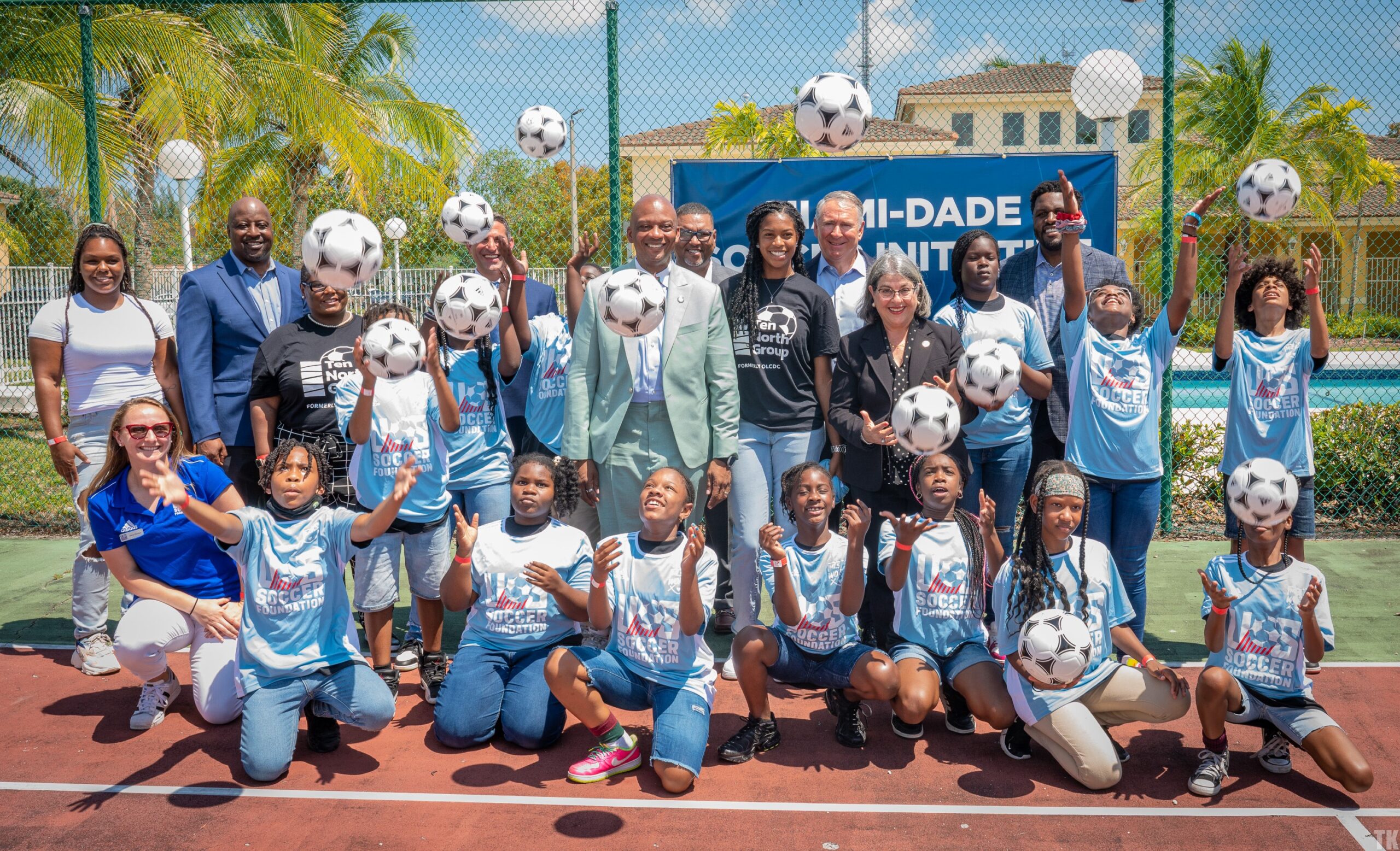
Parking Lot to Mini-Pitch
“Miami, like every other major city, has no shortage of private pay-to-play soccer opportunities. Soccer is a big deal here—with the Latin American community here, the Caribbean community here—it is a bigger deal here than in most places. What intrigued us about this project specifically is that the program couples social and emotional wellness with the game; it isn’t just about soccer. We like the fact that it has a far reach.”
At the size of a tennis or basketball court—far smaller than the standard 150-by-300-foot soccer field—mini-pitches are designed to fit in denser sites, repurposing underused space for play while providing all the fittings needed for rewarding soccer games.
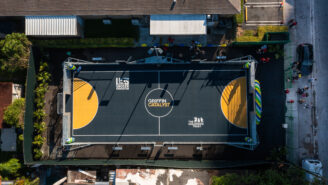
Surfaced in a resilient composite material for easy maintenance, the mini-pitches provide permanent goals, benches for players and families, storage for equipment, and lighting for evening use. The pitches are suited for “small-sided play,” in which teams of three-on-three or five-on-five people play a faster and shorter version of soccer—more enjoyable and less intimidating, for many younger children, than the standard game. “It creates a different kind of environment that makes it easier for a few friends to get together and go out and play,” observes Ed Foster-Simeon, president and CEO of the U.S. Soccer Foundation. “On a mini-pitch, I’ve only got five guys [on my team]. And the space meets the kids where they are.”
“Soccer is such an international sport that you can play almost anywhere, and it’s a sport that [people] really enjoy, and that they follow. So, for us it was an easy sell, because a lot of the families come from places where soccer is something they do more than baseball or basketball, where it’s the number one sport. It was a win-win situation. ”
Among the partnership’s first completed projects is a new mini pitch at Centro Mater, a childcare and early education center in the Miami neighborhood of Little Havana. Founded in the 1960s to meet the needs of the city’s Cuban immigrant population, the center could make room for the new facility only by converting the one space available—their parking lot. “At first, it was like, h, my god, we’re using the parking,” recalls the center’s director, Madelyn Rodriguez Llanes. “[But in time] everybody bought into it. It’s for everyone, and the children are having such an amazing time, and it’s such a beautiful, clean, well-kept facility that even when we do activities that are not soccer-related, we take the kids there. The dance team practices there. The band practices there. So, it’s become an extension to our entire operation.”
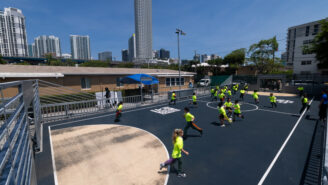
Since its opening in October 2023, the Centro Mater mini-pitch has enjoyed almost constant use—by young children, by preteen and high-school groups in the community, and even by soccer clubs from other parts of the city, who take advantage of its lighting to practice in the evening. “The children will never forget the experience that they have … something where you’re creating positive memories,” observes Rodriguez Llanes. “And when they get to be an adult, they’ll go back and remember that moment when they were able to do something that they liked, something that is dignifying, that is organized. And that is, to me, priceless.”
A Gathering Place
“I can’t overstate the importance and value of Ken’s belief in this kind of work. It’s very easy for most of society to say, “Oh, soccer … that’s just fun and games.” And what Ken has seen is the deeper value of engaging in sport beyond what’s on the scoreboard, who won a trophy. It’s about learning … teamwork, accountability, how to be responsible to other people, how to win gracefully, and how to overcome defeat and disappointment, the value of perseverance and grit. Those things will help young people become productive members of society.”
The value of the mini-pitches extends far beyond providing a convenient place to play. In a recent evaluation of the U.S. Soccer Foundation’s programs by American Institutes for Research, 88 percent of participants were found to work better on a team, 86 percent to stay away from trouble-making behavior, and 72 percent to try harder in school as a result of their engagement in soccer.

I think that you can see the difference when the kids are involved in activities like soccer. They grow up with a sense of respect. They mature inside. And I think it’s great that kids have … a place that they feel safe to go and play a sport … It’s wonderful for kids to have that in their life.
Beyond its value to the participants, the program helps the city as a whole. Transformed from underused lots, the bright, colorful, and well-maintained mini-pitches contribute to the vitality of their communities, offering underserved neighborhoods a new and central location for recreational activities. “This is not only about getting kids playing,” Ed Foster-Simeon notes. “It’s about bringing communities together. I’ve met people on the touchlines of soccer games watching my kids play that I would never have met in my community … It’s a gathering place where people from different backgrounds come together to watch their children play, but they get to know one another as well. So, this is not only about creating access to play. It’s about strengthening communities by building places where people can gather and strengthen social cohesion.”
“What this does is create a culture where you don’t have to pay to play. You’re able to just come and within your community in those 50 mini-pitches across Miami, enjoy the game for free. And more than that, connect with your community. The mini-pitches help to remove barriers of entry to play and allow kids to be kids, to let them have a space where they can play and have trainers … allowing them to build life skills so that hopefully, tomorrow, the things that they can learn in the field can transfer to their life.”
